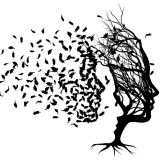In this article:
What is a Family Psychology Degree?
A family psychology degree focuses on understanding how family dynamics and relationships affect the mental health and well-being of family members. This degree teaches students about how different factors, such as communication patterns, conflict, and parenting styles, can impact individuals within a family. It also covers how family systems interact and how to support families dealing with challenges like divorce, illness, or trauma.
In a family psychology program, students learn how to assess and treat emotional, behavioral, and mental health issues that affect families. They study topics like child development, family therapy techniques, and strategies for improving relationships within families. The program emphasizes working with both individuals and families as a whole to address problems and improve family functioning.
Program Options
Program options for a family psychology degree can vary depending on the institution and its specific offerings. Here are some common program options you might encounter:
- Bachelor’s Degree in Psychology (with a focus on Family Psychology): This undergraduate program introduces students to the basics of psychology and family dynamics. It covers topics such as child development, family systems, and the impact of relationships on mental health, providing a foundation for future graduate study or entry-level positions in counseling and social services.
- Master’s Degree in Marriage and Family Therapy (MFT): This graduate program provides specialized training in therapy techniques for working with couples and families. Students learn how to assess and treat relational, emotional, and behavioral issues within family systems.
- Master’s Degree in Family Psychology: Some universities offer specialized programs with a focus on family systems, psychological theory, and therapy techniques for addressing mental health issues within families. While less common than MFT programs, these programs focus on understanding and improving family dynamics.
- Doctoral Degree (Ph.D.) in Clinical Psychology (with a focus on Family Psychology): This program allows students to specialize in family dynamics, family therapy, and other areas related to mental health within family systems. While the degree is in clinical psychology, students can focus their research and practice on family psychology.
- Doctoral Degree (Psy.D.) in Clinical Psychology: Similar to the Ph.D. in clinical psychology, the Psy.D. program focuses on preparing students for practical clinical work. With a specialization or concentration in family therapy or family psychology, students learn to address family systems and provide therapeutic interventions.
- Doctoral Degree (Ph.D. or Psy.D.) in Marriage and Family Therapy (MFT): While this degree is specifically focused on marriage and family therapy, it includes in-depth training in family systems and therapeutic techniques, preparing students for high-level clinical practice, research, and teaching careers.
Skills You’ll Learn
In a family psychology degree program, students develop a variety of skills that are essential for understanding and supporting families in both therapeutic and research settings. These skills include:
- Family Assessment and Intervention: Students learn how to assess family dynamics, identify issues affecting family members, and create intervention plans to address problems such as communication breakdowns, conflict, or mental health issues.
- Therapeutic Techniques for Families: Students gain expertise in different therapy methods, such as family therapy, parent-child counseling, and conflict resolution strategies, to help families improve relationships and cope with challenges.
- Child and Adolescent Development: Students study how children and adolescents develop emotionally, socially, and behaviorally, which helps in understanding their role within the family and providing appropriate support.
- Crisis Management: Students are trained to handle family crises, such as divorce, grief, or trauma, and develop strategies to support families during these difficult times.
- Communication Skills: Students learn how to facilitate healthy communication within families, helping family members express their needs, resolve conflicts, and strengthen their relationships.
- Research and Data Analysis: Students develop skills in conducting research on family dynamics and mental health, as well as analyzing data to evaluate the effectiveness of therapeutic interventions and programs.
What Can You Do with a Family Psychology Degree?
A family psychology degree opens up a variety of career opportunities for individuals interested in working with families and supporting their emotional, psychological, and relational well-being. Graduates can pursue the following career paths:
- Marriage and Family Therapist (MFT): Provides therapy to couples and families, helping them work through issues like communication problems, parenting challenges, or emotional struggles. MFTs often work in private practices, counseling centers, or healthcare settings.
- Clinical Psychologist: A licensed psychologist who works with individuals and families, diagnosing and treating a range of mental health conditions. Clinical psychologists can specialize in family dynamics but their title typically doesn’t specify "family psychologist."
- Researcher: Conducts studies on family dynamics, child development, or relationship patterns, working in academic institutions, research centers, or government agencies.
- Policy Analyst: Works with government organizations or nonprofits to develop and implement policies that support families, particularly in areas like child welfare, healthcare, and family services.
- Family Support Specialist: Works in social service agencies, providing resources, guidance, and intervention to families facing challenges such as poverty, addiction, or domestic violence.
- Child and Family Counselor: Focuses on helping children and their families manage behavioral or emotional issues, often working in schools, community centers, or mental health clinics.
- Parenting Educator: Teaches parenting skills and techniques to help parents improve their child-rearing practices and strengthen family relationships, often working in schools, community organizations, or healthcare settings.

